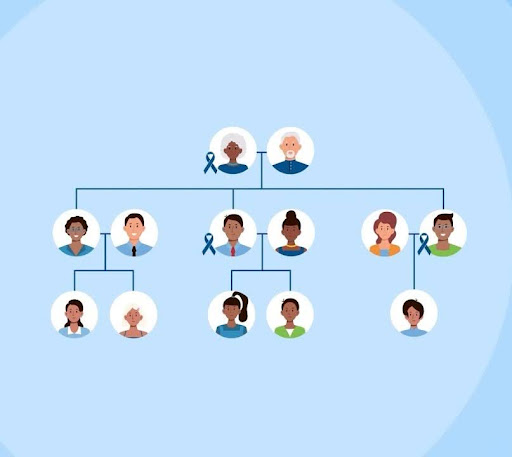Is It Time to See a Paediatric Neurologist? A Parent’s Guide
(1).jpg)
As parents, we want nothing more than for our children to grow up healthy, happy, and thriving. But sometimes, things don’t feel quite right, your child may not be speaking on time, may complain of frequent headaches, or may struggle with focus and learning in school. When these concerns arise, one important step you can take is consulting a paediatric neurologist.
Let’s learn more from Dr Tan Jen Ern, Consultant Paediatric Neurologist at Sunway Medical Centre Velocity, about how this specialised role supports your child’s health and development.

What Conditions Does a Paediatrician Neurologist Treat?
A paediatric neurologist looks after children with problems involving the brain, nerves, or muscles. Some conditions are mild and short-term, while others may need more care over time. Here are some common ones:
- Epilepsy & Seizures – Sudden body jerks, staring spells, or moments when your child “switches off” could be seizures.
- Developmental Delays – When a child is slower to sit, walk, talk, or learn compared to others their age.
- Frequent Headaches – Repeated head pain that may come with feeling sick, dizziness, or blurred vision.
- Tics & Unusual Movements – Repeated movements or sounds like blinking, shoulder shrugging, or throat clearing.
- Muscle Weakness or Poor Balance – If your child often trips, tires easily, or has trouble running or climbing stairs.
- Genetic Disorders – Conditions which children are born with that affect how their brain, nerves, or muscles work.
- Paediatric Stroke – Rare, but strokes can happen in children too and need quick medical care.
Even if your child hasn’t been diagnosed with anything yet, it’s okay to seek advice. If you’re worried something might not be right, you’re not imagining things. Trust your instincts and have a chat with a specialist.
When Should You Take Your Child to See a Paediatric Neurologist?
It’s not always easy to know when to make that first appointment. Some symptoms can be subtle or come and go — but early advice can make a big difference.
You may want to see a paediatric neurologist if:
- Your child has had seizures, fainting spells, or moments of blank staring.
- They are slower to walk, talk, or learn to use the toilet.
- They have trouble paying attention, sitting still, or following simple instructions.
- Headaches keep coming back or are so bad they affect daily activities or vision.
- You notice unusual movements, such as twitching, tics, or jerking.
- There’s a family history of neurological or genetic conditions.
If you’re unsure, it’s always okay to ask. A specialist can help you understand what’s happening and guide you on what to do next.
What Happens During a Neurology Visit?
.jpg)
A visit to a paediatric neurologist might sound scary at first, but it’s actually very child-friendly and reassuring.
Here’s what usually happens:
Step 1: Getting to Know Your Child
Dr Tan and his team will begin with a detailed conversation. They’ll ask about:
- Your pregnancy and birth experience
- Any medical issues or hospital visit
- Your child’s developmental milestones
- What specific behaviours or symptoms you’re concerned about
Don’t worry if you can’t remember everything, just share as much as you can. Every detail helps.
Step 2: Gentle Neurological Examination
Next, your child will be gently examined through simple movements and games. This may include:
- Checking reflexes and muscle strength
- Watching how your child walks, moves, or balances
- Looking at eye movements and hearing
- Observing how your child communicates and responds
It’s designed to be non-invasive and easy for children to follow.
Step 3: Additional Tests (If Needed)
Depending on what the doctor finds during the visit, they may suggest some tests to learn more:
- EEG (Electroencephalogram) – Checks the brain’s electrical activity to look for signs of seizures.
- MRI (Magnetic Resonance Imaging) – Takes detailed pictures of the brain or spine to see if there are any abnormalities.
- Blood Tests – Help look for genetic conditions or other medical causes.
- Developmental or Behavioural Assessments – See how your child is learning, communicating, and interacting with others.
These tests help the doctor understand your child’s condition better and plan the right care.
What Comes Next?
Depending on what’s found, you’ll receive a personalised care plan. This might include:
- Medication (if needed)
- Therapy (e.g., physiotherapy, speech or occupational therapy)
- Referrals to other specialists or educational support
- Regular follow-up appointments to track progress
At every step, you’ll be supported, not just with medical care, but with guidance, reassurance, and answers to your questions.
Real-Life Scenarios That Surprise Many Parents
To help you understand how a paediatric neurologist can help, here are a few real situations often seen in clinic:
The “Daydreaming” Student
A school-aged child who often seems to “zone out” or stare blankly in class is later found to have absence seizures — a mild form of epilepsy that’s easy to miss.
Not Just Clumsy Walking
A child who walks late and falls often isn’t simply clumsy — further assessment and tests reveal Duchenne muscular dystrophy, a muscle condition that needs early treatment and support.
Frequent Fevers and Seizures
A toddler with repeated febrile seizures who later stops meeting milestones may have a genetic epilepsy syndrome such as Dravet syndrome.
Jerky Movements in Infancy
An infant with sudden jerks or spasms, especially after waking, is diagnosed with infantile spasms — a serious condition that needs urgent care.
Delays with an Underlying Cause
A young child with speech delay, poor coordination, and features of autism is found to have a genetic condition after further testing — helping parents understand and plan better for the future.
These examples show why early consultation matters — the earlier we detect a problem, the earlier we can help your child get the right care.
Word to Parents
.jpg)
You’re not alone. Whether you’re here out of concern or simply want a second opinion, reaching out to a paediatric neurologist is a positive step forward. Early action can help your child unlock their potential, and give you peace of mind as a parent.
If you’re worried about your child’s development, behaviour, or brain health, don’t hesitate to consult Dr Tan Jen Ern, Consultant Paediatric Neurologist at Sunway Medical Centre Velocity. He and his team are here to support your family every step of the way.
Was this article helpful?
1 out of 1 found this helpful
Suggest to Read









